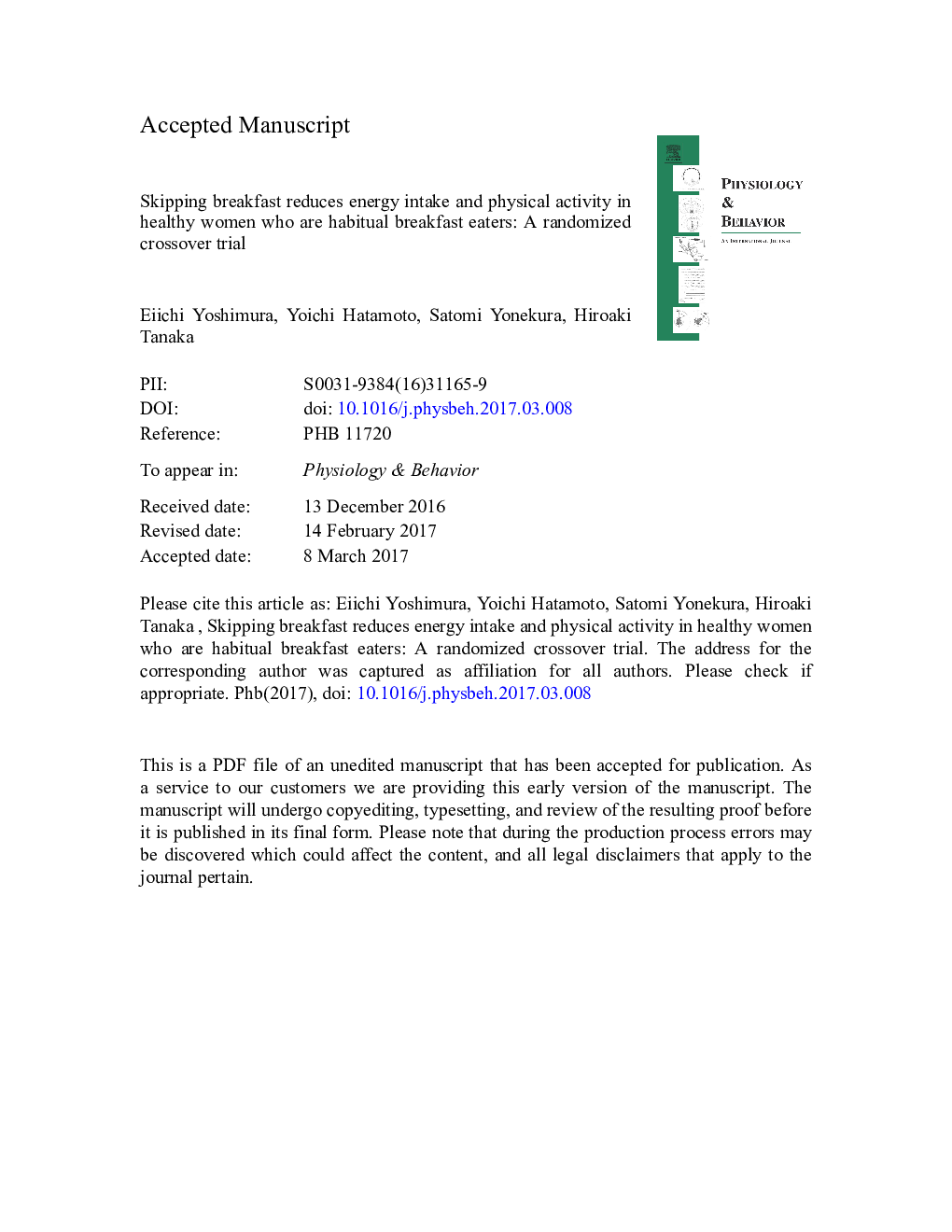| Article ID | Journal | Published Year | Pages | File Type |
|---|---|---|---|---|
| 5593701 | Physiology & Behavior | 2017 | 25 Pages |
Abstract
Many epidemiological studies indicate a positive relationship between skipping breakfast (SB) and obesity. However, it is unclear whether SB affects energy intake and physical activity during the day. The objective of the present study was to evaluate the acute effects of SB on energy intake and physical activity under free-living conditions. The present study used a randomized, crossover trial design comparing eating breakfast (EB) and SB days. Twenty lean, healthy women 21-25 years old who were habitual breakfast eaters (â¥Â 5 days per week) took part in this study. On EB days, participants were provided a standard breakfast (542 kcal). The meals and physical activity after breakfast were under free-living conditions. The meals consisted of foods available at supermarkets, restaurants, and convenience stores. Dietary intake was evaluated by adding values from food labels. Physical activity was assessed using a tri-axial accelerometer. Energy intake at lunch was significantly increased after SB compared with EB (+ 131 ± 188 kcal; p = 0.0057). Total energy intake per day was significantly lower after SB compared with EB (â 262 ± 428 kcal, p = 0.013). Physical activity energy expenditure was slightly lower after SB compared with EB (â 41 ± 75 kcal in the morning, p = 0.024; â 56 ± 129 kcal per day, p = 0.064). Step counts and time spent physically active over the whole day were not significantly different between conditions. Skipping breakfast reduced energy intake during the day and morning physical activity in healthy women who were habitual breakfast eaters. The decreased energy expenditure related to physical activity after SB did not exceed the decreased energy intake.
Related Topics
Life Sciences
Biochemistry, Genetics and Molecular Biology
Physiology
Authors
Eiichi Yoshimura, Yoichi Hatamoto, Satomi Yonekura, Hiroaki Tanaka,
